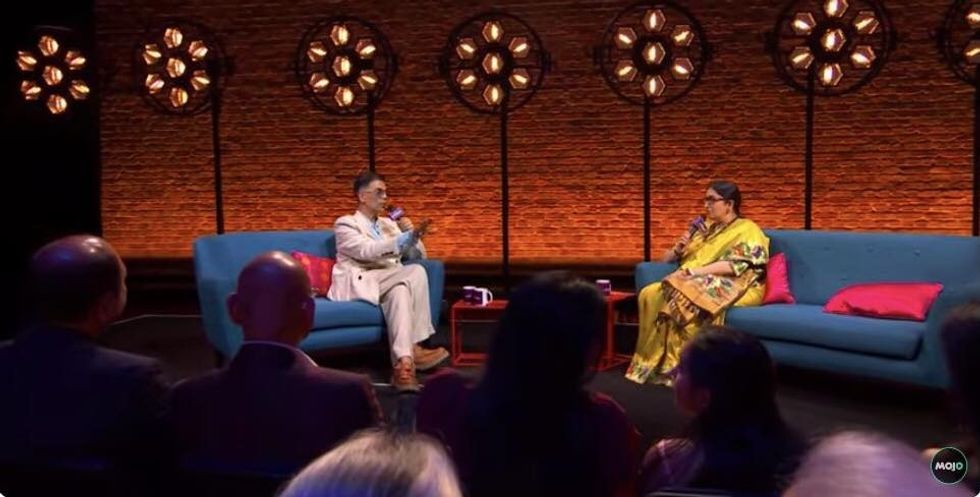By Ranil Jayawardena
INDIA is one of the UK’s most important friends and allies. India’s economy is now nine times larger than it was in 1990, making it the fifth largest economy in the world. India is truly an economic powerhouse that will help define the 21st Century, and I was glad to see the strength of the Anglo-Indian relationship on full display for all to see as part of the recent India Global Week.
Of course, Britain and India already have a strong bond. Both our countries benefit from unique people to people links. Here in Britain, we have an Indian diaspora of over 1.5 million people, creating prosperity here and in India.
India is also already a key trading partner for the UK, and the work we have done together during coronavirus has demonstrated the real depth and strength of our trade and investment relationship.
We have worked closely to keep vital supply chains open and flowing including, for example, for Personal Protective Equipment. Over the past few months, the British and Indian governments worked together to deliver 11 million face masks here – and much more besides. I know I speak for so many across Britain when I say we are deeply grateful for the support and friendship that India has shown us during this challenging time.
Elsewhere, we already have strong economic ties in areas like technology, business services and pharmaceuticals. Overall trade between our countries hit £24 billion in 2019, up by almost 10 per cent in just one year, and India has also recently risen up the ranks to become the second largest investor in the British economy last year. Even before coronavirus, Britain was India’s second largest research partner. But there is the potential to do so much more.
Just last week, I spoke again with India’s Minister for Commerce, Hardeep Singh Puri, as we both strive to deliver upon our shared ambition to be forces for good in the world through doubling down on bilateral trade.
In realising the benefits of leaving the EU, we want to work with like-minded partners to champion free trade and fight protectionism. We want to go further in building our relationship with India, knocking down existing barriers to trade in both countries, creating jobs and opportunities for growth by drawing on the strengths of our economies.
This week, we held the 14th meeting of the UK-India Joint Economic and Trade Committee (JETCO) to discuss ways to expand and deepen our trading relationship, although we were having to do it virtually. While we would have hoped to meet in-person, I am glad we’re able to make further progress, even during a pandemic.
As part of these discussions we agreed to establish an Enhanced Trade Partnership as a first step as part of a wider roadmap for a deeper trade relationship. Subject to progress, this could lead to a future Free Trade Agreement, removing some of the non-tariff barriers that serve as obstacles to our exports reaching their full potential along the way.
So as well as deepening our overall trade partnership, I want to help our British producers secure better access to the Indian market here and now. According to industry estimates, our work so far unlocking trade barriers will deliver a £250 million annual boost to British businesses, and is benefitting all parts of both Britain and India. Whether that’s helping our Welsh farmers export their high-quality Lamb to India, or helping Indian farmers to increase crop yields while supporting a cleaner, greener and sustainable environment by enabling British exports of polyhalite – a multi-nutrient fertiliser mined in Yorkshire – much has been done.
But there is more still to do. For example, being able to export apples and pears to India for the first time, or working together to support the music industries of both countries. We want to make it easier for expert Indian and British legal professionals to work in each other’s countries too, and secure even greater investment in each other’s economies. And, as we look ahead to hosting the UN climate change conference (COP26) in November next year, there is also an opportunity to strengthen our collaboration as a global force for good on climate and green recovery.
There is no better moment than now to celebrate our relationship and explore the real potential of what we can achieve together in the future. In times of economic difficulty, it is more important than ever for countries to remain open to trade. I’m proud of the progress we have made so far with India and I’m looking forward to seeing what comes next for our trading relationship. While it is great to stay in touch virtually, I hope that I will be able to make the journey to meet my Indian counterparts in-person – deepening our ties and more fully introducing them to all the United Kingdom has to offer – as soon as we have defeated our common enemy, coronavirus, together.
(Ranil Jayawardena MP is the UK minister for International Trade)


















 Karan Johar and Smriti Irani
Karan Johar and Smriti Irani